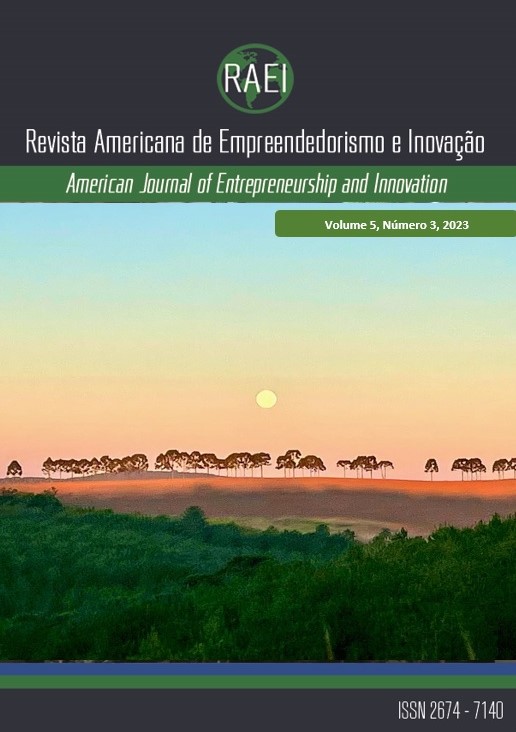COMMERCIAL PATROL: IMPLEMENTATION OF A NEW POLICING MODEL
DOI:
https://doi.org/10.33871/26747170.2023.5.3.8300Keywords:
Palavras chaves: Patrulha Comercial, Polícia Militar do Paraná, Legitimidade Organizacional.Abstract
This work sought to analyze the implementation of a new type of policing that has been adopted by the Force Police of Paraná: the Commercial Patrol. Based on studies by several authors, it was noticed that several discussions arise around this topic, making it a complex and multifaceted topic. International literature has shown that a police force that aims to comply with regulations is more effective. In Brazil, studies have shown that a police force that seeks legitimacy and procedural fairness tends to be more competent. However, the legitimacy of implementing a new model may face several obstacles, but there are strategies that can help overcome them. Some of the common obstacles include resistance to change, organizational culture, job-specific training and training, community acceptance and lack of clear guidelines to standardize and guide the work of police officers, strengthening both the relationship between colleagues and the relationship between the police and the community. Therefore, it is suggested that the Commercial Patrol seeks community involvement through consultations, meetings and other available tools to establish formal guidelines based on community policing, with the aim of creating a partnership between the population and the Force Police, contributing to the legitimacy and effectiveness
of this policing model.
Downloads
References
BATITUCCI, E. C. Gerencialismo, estamentalização e busca por legitimidade: O campo policial militar no Brasil. Revista Brasileira de Ciências Sociais, v. 34, n. 101, p. e3410111, 2019.
______. A evolução institucional da polícia no século XIX: Inglaterra, Estados Unidos e Brasil em perspectiva comparada. Revista Brasileira de Segurança Pública, 4(7), 30-47. 2010.
BJA - Bureau of Justice Assistance Response. Understanding Community Policing. A Framework for Action. Washington, NCJ 148457. DC 20531 800–421–6770. Monograph. 82 p. 1994. Disponível em: <https://www.ojp.gov/pdffiles/commp.pdf>. Acesso em: 20 ago. 2023.
FERREIRA, D. V. DE S., et al. Lógicas institucionais do policiamento comunitário: esquema analítico e agenda de pesquisa para o contexto brasileiro. Revista de Administração Pública, v. 56, n. 1, p. 134–162, jan. 2022.
FRIEDLAND, R; ALFORD, R. Bringing society back in: symbols, practices, and institutional contradictions. From: The New Institutionalism in Organizational Analysis. Chicago: University of Chicago Press, 232–263. 1991.
HOLMBERG, L. Personalized policing: Results from a series of experiments with proximity policing in Denmark, Policing: An International Journal, Vol. 25 No. 1, pp. 32-47. https://doi.org/10.1108/13639510210417881. ISSN: 1363-951X
IPEA – Instituto de Pesquisa Econômica Aplicada. 16. Paz, Justiça e Instituições Eficazes. 2023 Disponível em: <https://www.ipea.gov.br/ods/ods16.html>. Acesso em: 31 Ago. 2023
MESQUITA NETO, P. DE . Policiamento comunitário e prevenção do crime: a visão dos coronéis da Polícia Militar. São Paulo em Perspectiva, v. 18, n. 1, p. 103–110, jan. 2004.
MINTZBERG, H. A estrutura das Organizações. São Paulo: Dom Quixote, 1995.
______. Power In and Around Organizations, Prentice Hall, p. 134-137. 1983.
MONTEIRO, M. F. O policiamento comunitário como alternativa à democratização da polícia. 249 f. Monografia de Mestadro (Direito – Criminologia). Universidade Cândido Mendes. Rio de Janeiro, 2005.
PARANA. Policiamento comunitário na PMPR - Diretriz N.0 002/2004- PM/3. Curitiba: Polícia Militar do Paraná - Comando Geral, 2004.
PIRES, L. DOS S.; ALBERNAZ, E. R. “Na teoria, a prática é outra coisa!” - Socialização “escolar”, estrutura bipartida e conflitos na Polícia Militar do Estado do Rio de Janeiro (PMERJ). Revista Brasileira de Segurança Pública. São Paulo. V. 16. ed. especial. 232-251. 2021. DOI: 10.31060/rbsp.2022.v16.n1.1397.
RAHR, S.; RICE, S. K. From warriors to guardians: recommitting American police culture to democratic ideals (New Perspectives in Policing Bulletin). Washington, DC: U.S. Department of Justice, National Institute of Justice. 2015
ROSSONI, L. O que é legitimidade organizacional?. Organizações & Sociedade, v. 23, n. 76, p. 110–129, jan. 2016.
SCOTT, W. R., et al.. Institutional Change and Health Care Organizations. From Professional Dominance to Managerial Care. 452 f. University of Chicago Press, Chicago: 2000.
TERPSTRA, J; SALET, R. The contested community police officer: an ongoing conflict between different institutional logics. International Journal of Police Science & Management, 21(4), 244-253. 2019.
TYLER, T. R. Procedural Justice, Legitimacy, and the Effective Rule of Law. From: Crime and Justice: A Review of Research, V. 30, P 283-357, 2003, Michael Tonry, ed., See NCJ- 202743. ISSN: 0192-3234 ISBN: 0-226-80862-9. The Univelsity of Chicago Press, Chicago and London.
VAN DER TORRE, E. J., et. al. (2007). De kerntakendiscussie: verloop, opbrengsten en barrières. The Netherlands, Politie & Wetenschap. Den Haag, Arnhem, Apeldoorn, maart. 2007.
ZANETIC, A. et al.. Legitimidade da polícia: Segurança pública para além da dissuasão. Civitas - Revista de Ciências Sociais, v. 16, n. 4, p. e148, out. 2016.

